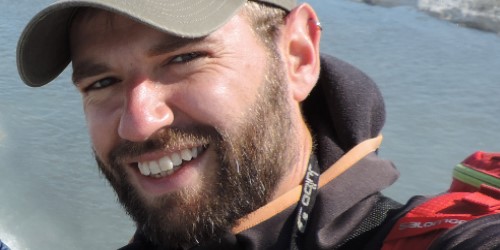Artificial intelligence for environmental monitoring
About the project or challenge area
Environmental monitoring is critical to the protection of human health and the environment. As the world’s population continues to increase, industrial development and agricultural practices continue to expand, as does their associated pollution. The requirement for environmental monitoring through observation of key physical, chemical and biological properties is thus greater than ever, particularly for freshwater sources utilised for human consumption.
Biological monitoring of freshwater resources involves regular characterization of microbial assemblages that pose potential human health risks, e.g. Enteroccocus bacteria, harmful cyanobacterial blooms or waterborne protozoan parasites. Traditional techniques for their identification and enumeration involves time-consuming microscopic analysis of water samples undertaken by highly trained individuals, and represents a significant bottleneck in current monitoring capabilities.
Over the recent past, Artificial Intelligence has significantly reduced the gap between the capabilities of humans and machines, with deep learning convolutional neural networks (CNNs) allowing for rapid object detection and identification from image datasets. Building on the recent success of the MicroLab@Bristol in the application of CNNs for the detection and identification of microbial communities from imaged lab and field samples, this project will expand and explore the capacity for CNNs to be used in real-time environmental monitoring of UK freshwater systems.
The successful candidate will work under the supervision of microbiologist Dr Chris Williamson, data scientist Dr Levi Wolf and in collaboration with a leading UK water company to produce robust CNNs capable of detecting, identifying and enumerating harmful microbial communities that dominate UK freshwater systems. Whilst the overarching aims of the project are established, there is significant flexibility to allow the successful candidate to drive the project more toward the ecological or artificial intelligence disciplines depending on their preference.
Why choose this project?
You will receive training in microbiology, state-of-the-art imaging techniques, convolutional neural network design, implementation and optimization, as well as several transferable skills in data handling and analysis, academic writing, and presentation. You will be based in the MicroLab@Bristol research group within the School of Geographical Sciences and be integrated into the Quantitative Spatial Science Lab within the same school.
About you
You will have a broad interest in data science and artificial intelligence, and the application of these techniques to real-world problems. Microbiology experience is beneficial though not critical as training will be provided where necessary.
How to apply
All students can apply using the button below, following the Admissions Statement (PDF, 188kB). Please note that this is an advertised project, which means you only have to complete Section A of the Research Statement.
This project is not funded, for further details please use this link.
Before applying, we recommend getting in touch with the project's supervisors. If you are interested in this project and would like to learn more about the research you will be undertaking, please use the contact details on this page.
 Supervisor
Supervisor
Your supervisor for this project will be Chris Williamson, Lecturer in Polar Microbiology in the School of Geographical Sciences. You can contact him at +44 (0) 117 42 82366 or email c.williamson@bristol.ac.uk.
 Supervisor
Supervisor
Your co-supervisor for this project will be Levi John Wolf, Lecturer in Quantitative Human Geography in the School of Geographical Sciences. You can contact him at +44 0117 92 88125 or email levi.john.wolf@bristol.ac.uk.
Find out more about your prospective research community
The Water theme is a vibrant community of researchers who are transforming the evidence base for water-based decision making in a changing and deeply uncertain world. Find out more about the Water research theme.